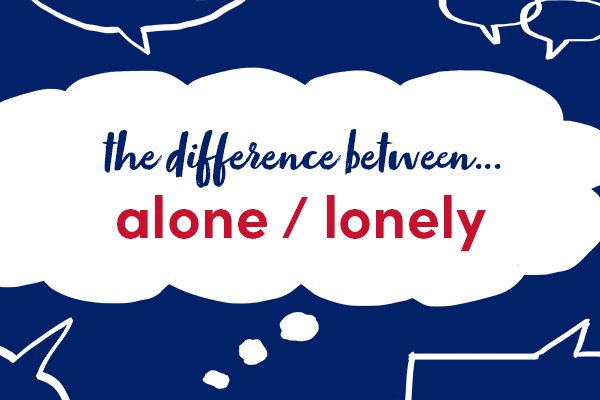This week we are looking at two words which are sometimes confused: alone and lonely.
alone

If you are alone, you are not with any other people.
I wanted to be alone.
Lucy spends most of her time alone in the flat.
Make sure that you don’t use ‘alone’ in front of a noun. For example, don’t talk about ‘an alone woman’. Instead, you say ‘a woman on her own’.
These holidays are popular with people travelling on their own.
lonely

If you are lonely, you are unhappy because you don’t have anyone to talk to. Lonely is used either in front of a noun or after a linking verb like be or feel.
She must be very lonely here.
He was a lonely little boy.
Find out more in our English Usage article.
This blogpost is based on Collins COBUILD English Usage, written for learners of English. For more examples of English usage points, please visit: https://grammar.collinsdictionary.com/english-usage.
All opinions expressed on this blog are those of the individual writers, and do not necessarily reflect the opinions or policies of Collins, or its parent company, HarperCollins.



